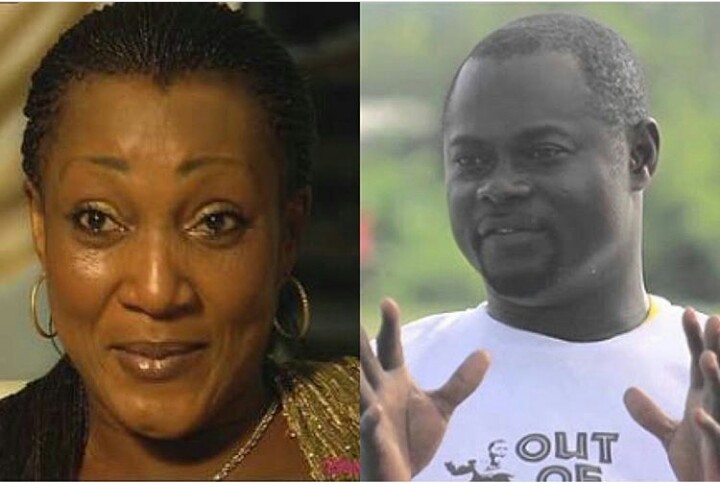
*25% of Nigerian Men Not Biological Fathers of Their Children
*Women Marry Man Who is Ready, Not Necessarily Who They Love
A female lab scientist who works in a laboratory where they conduct DNA test has confessed to have doctored results for women whose husbands did not father their children. In a confession video, the lady said that she did that to save the marriage of those women.
According to her, some would come begging and crying; others would come with cash gift appealing that the result of the DNA test should be twisted to indicate that their husbands are the fathers of their children.
A lot of reports have also indicated that about 65% of the first children of many couples were fathered by different men, not the husbands of the women. This was attributed to the fact that women usually have boyfriend who may love them and they love the men, but because the boyfriends do not have money or are not ready to marry at that point in time, they marry any other man that asked for their hands in marriage.
Often, goodbye sex, a parting gift, may result in pregnancy which is given to their husbands. Investigations reveal that this happens a lot these days because fewer men have the resources to marry, as the economy has tanked.

Studies also revealed, ”From experience in DNA testings, most firstborns are not fathered by the husbands at home, because these ladies have a prior relationship before getting married. Most times, they continue with that relationship, they don’t leave it after marriage…”
In 2021, (published September 18), Abiodun Salami, a senior geneticist with DNA Centre for Paternity Test, Allen Avenue in Ikeja, Lagos, granted interview to Premium Times. His DNA centre has for over 10 years, provided comprehensive DNA testing services in three main areas: paternity and other family relationships, Immigration, and DNA tests during pregnancy – Prenatal DNA test.
In this interview with PREMIUM TIMES, Mr Abiodun spoke about paternity fraud and the practice of DNA testing in Nigeria.
He revealed, “Let me give you the statistics. Before now, we do an average of 100 DNA tests in a month, but now we handle as many as 400 cases monthly. The statistics are mind-blowing. You discover that almost 60 percent of the tests that people come to do are negative. In fact, 6 out of every 10 paternity tests turn out negative. Statistically, in DNA paternity testing, most times, in Nigeria, we see that six out of every 10 children might not be fathered by their biological father.
“I always advise men, it is good to trust, but verify. Things are happening. If everyone starts doing DNA tests, the whole country will scatter. There will be no marriages again.
Most female undergraduates now have one man or the other sponsoring their education aside from their father. These are the men that will eventually be the chairmen at their wedding. These are the men they are actually sleeping with. From experience in DNA testings, most firstborns are not fathered by the husbands at home, because these people have a prior relationship before getting married. Most times, they continue with that relationship, they don’t leave it after marriage,” Salami said.
Punch newspaper report on August 18, 2025, stated that a new DNA testing report had revealed that one in every four Nigerian men who undergo paternity testing is not the biological father of the child in question.
The 2025 Annual DNA Testing Report, released by Smart DNA Nigeria, which analysed data collected from July 2024 to June 2025, found that the national paternity exclusion rate currently stands at 25 per cent.
Although slightly down from the 27 per cent recorded in the previous year, the data confirmed a troubling and persistent trend in which many presumed fathers turn out not to be biologically related to their children.

According to the Lagos-based DNA testing firm in a statement released on Sunday, the findings reflect a growing awareness and demand for scientific confirmation of paternity, especially in urban areas where social pressures, infidelity suspicions, and legal implications are prompting more men to seek clarity.
The report further revealed that firstborn children, particularly sons, were the most likely to return negative paternity results.
Smart DNA disclosed that 64 per cent of all discrepancies involved firstborn sons, while firstborn daughters were also significantly more likely to be misattributed compared to younger siblings.
The study also showed that men overwhelmingly initiate paternity tests, accounting for nearly 90 per cent of cases.
Women, on the other hand, made up just 11.8 per cent of those requesting DNA tests.
Beyond personal enquiries, the report identified a sharp rise in immigration-related DNA testing, which now constitutes 13.1 per cent of all DNA cases handled by the firm.
Smart DNA noted that a growing number of Nigerian parents are using such documentation as a form of “second passport insurance”, ensuring their children can obtain legal status in another country if the need arises.
This trend, the firm said, not only reflects Nigeria’s economic and political challenges but also reveals the extent to which families are now making long-term migration plans with DNA evidence as a central requirement.
The Operations Manager at Smart DNA Nigeria, Elizabeth Digia, called on policymakers and institutions to take urgent action in response to the findings.
She lamented the absence of specific laws in Nigeria addressing paternity fraud, a legal gap that leaves many men without recourse after discovering that they are not the biological fathers of children they may have raised for years.
Digia said there was a need for reforms that include integrating DNA testing into family health and premarital counselling programmes.

She also advocated for nationwide public awareness campaigns aimed at correcting misconceptions around DNA testing, such as the belief that it is only accessible to wealthy families or that physical resemblance is enough to confirm biological ties.
According to her, many clients are left emotionally shaken by test results, and the firm now has protocols in place to offer support for families dealing with the fallout of unexpected findings.
“Nigeria lacks specific paternity fraud laws, unlike South Africa, leaving men with little legal recourse when discovering non-paternity after years of financial responsibility.
“Public health campaigns should normalise paternity discussions and integrate DNA testing into pre-marital and family health programs.
“Misconceptions persist, including beliefs that DNA testing is only for wealthy families or that physical resemblance guarantees paternity.
“Our role is to provide certainty through accurate testing while encouraging sensitive handling of the life-changing information our clients receive,” Digia said.
 Quelins – Relationship, Sex, Marriage and Health News around the world Quelins Blog is an online magazine about relationships, love, information about marriage, partnerships and issues patterning to all that.
Quelins – Relationship, Sex, Marriage and Health News around the world Quelins Blog is an online magazine about relationships, love, information about marriage, partnerships and issues patterning to all that.
